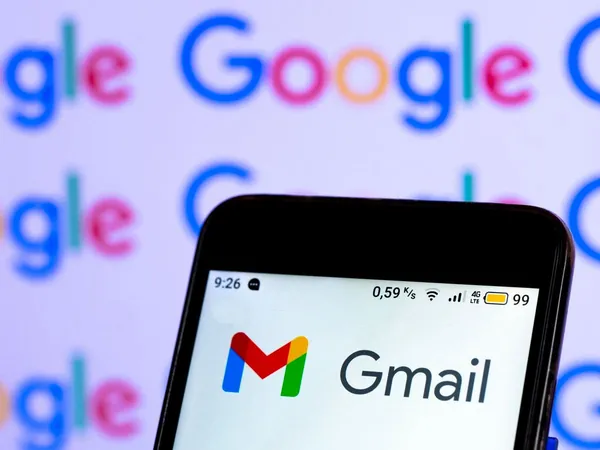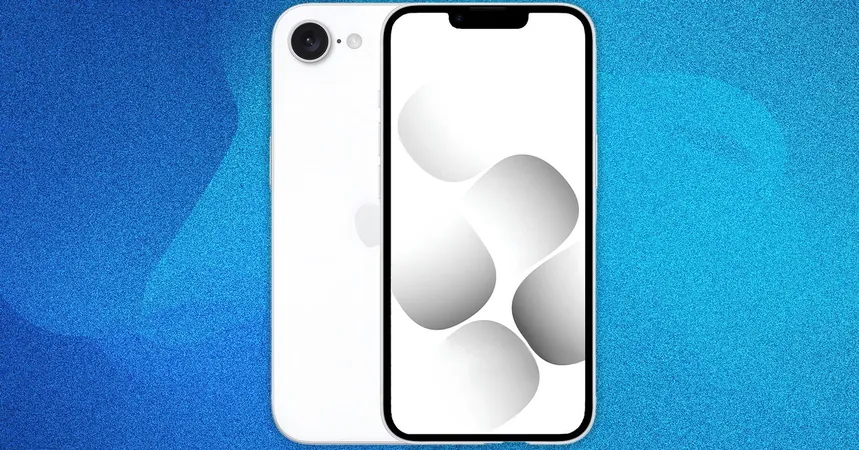
Gmail's Privacy Dilemma: 2 Essential Fixes for Your Email Security
2024-11-23
Author: Charlotte
Gmail's Privacy Dilemma: 2 Essential Fixes for Your Email Security
In a recent update on November 23, 2024, Google revealed new privacy measures for Gmail users, including shielded email addresses designed to enhance user security. However, while Gmail has become a staple for over 2.5 billion people—almost a third of the global population—its shortcomings regarding email privacy, particularly end-to-end encryption, remain a pressing concern.
Although Google has implemented encryption for emails during transit, which prevents eavesdropping while messages are being delivered, the larger issue lies in what happens once these messages reach their destination. Without end-to-end encryption, anyone with access to an inbox—whether it be a friend, relative, or malicious actor—can read the content of the email without any restrictions. For users seeking complete privacy in their communications, this is a significant gap.
Understanding Gmail's Security Landscape
Google has generally excelled in ensuring Gmail security through various features such as smart inbox categorization and spam detection. However, the privacy debate intensifies when discussing email encryption. Gmail uses Transport Layer Security (TLS) to protect messages during transit, akin to a temporary envelope shielding your email from prying eyes. That said, once the email arrives in the recipient's inbox, this envelope disappears, leaving the message unprotected.
Google has introduced the 'Confidential Mode,' which allows users to set expiration dates on emails and control message forwarding and downloading. But for those needing end-to-end encryption, the free version of Gmail falls short, and users are encouraged to explore outside options for enhanced privacy.
Two Solutions for Enhanced Email Privacy
1. Use Encryption Add-Ons: One effective way to safeguard your Gmail communications is to install email add-ons like SendSafely or Mailvelope, which employ the OpenPGP standard for end-to-end encryption. These extensions ensure that only the sender and recipient can access the message content. Google acknowledges the power of PGP encryption, stating that it provides a significant layer of security but requires users to forego the convenience of Gmail's searchable content.
2. Consider Switching to a Dedicated Email Service: For those serious about email privacy, using a dedicated service like Proton Mail may be the best choice. With features like end-to-end encryption and zero-access encryption—where even Proton cannot access your email content—this service positions itself as a robust alternative to Gmail. Currently, Proton Mail offers a free version with fundamental functionalities, along with premium packages that provide expanded storage and premium features like custom email domains. Proton Mail is also based in Switzerland, a country known for stringent privacy laws.
Gmail's New Shielded Email Functionality
Google is making strides in privacy enhancements, as seen in its latest feature titled 'Shielded Email,' which allows users to create multiple anonymous email addresses. Inspired by Apple’s Hide My Email feature, this functionality will enable seamless email forwarding and offer increased secrecy for users engaging with the digital world.
Moreover, the introduction of Google's Privacy Sandbox on Android aims to strike a balance between user privacy and access to free content and services. This initiative will introduce new application programming interfaces designed to facilitate personalized ads without compromising user data protection.
Final Thoughts
While Gmail remains a widely used and convenient email platform, its limitations in privacy, particularly concerning end-to-end encryption, are concerning. By using encryption tools or migrating to more privacy-focused email services like Proton Mail, users can better protect their sensitive communications. As online privacy becomes an increasingly crucial topic, it's essential to remain vigilant and proactive in safeguarding personal information.









 Brasil (PT)
Brasil (PT)
 Canada (EN)
Canada (EN)
 Chile (ES)
Chile (ES)
 Česko (CS)
Česko (CS)
 대한민국 (KO)
대한민국 (KO)
 España (ES)
España (ES)
 France (FR)
France (FR)
 Hong Kong (EN)
Hong Kong (EN)
 Italia (IT)
Italia (IT)
 日本 (JA)
日本 (JA)
 Magyarország (HU)
Magyarország (HU)
 Norge (NO)
Norge (NO)
 Polska (PL)
Polska (PL)
 Schweiz (DE)
Schweiz (DE)
 Singapore (EN)
Singapore (EN)
 Sverige (SV)
Sverige (SV)
 Suomi (FI)
Suomi (FI)
 Türkiye (TR)
Türkiye (TR)